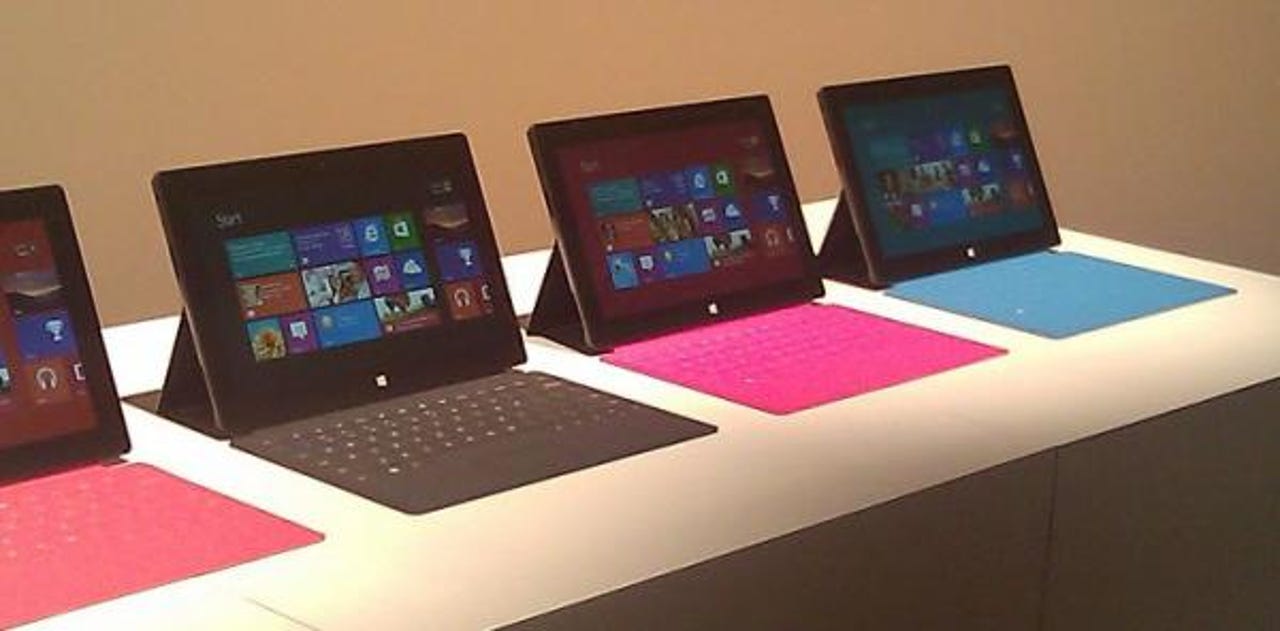Microsoft Surface tablets: High-end hardware but better be cheap


Microsoft knows that Windows 8 is going to fly off the shelf in good numbers. Every desktop, all-in-one system, laptop, and now tablet sold by its partners will have Windows 8 or Windows RT preinstalled once the OS is released. Millions of systems sold = millions of Windows 8 licenses sold, the formula Microsoft has found successful for years.
Entering the low-margin PC business is a whole new venture, and the economics are the devil in the details. Microsoft's partners don't load up systems with crapware that customers hate because they like to do it, it can be the difference in no margin and low margin with the revenue it adds to the PC sale price.
Profit margins in PCs, desktops and laptops, are horribly low for products that require so much engineering. They are not cheap to design and bring to market, and once at market they walk a fine line between losing and making money. It's a cut-throat business, and one Microsoft has just jumped into with both feet.
Early indications are that Microsoft intends to side-step the thin-margin PC business with its two high-end Surface tablets. They are beautifully designed and engineered, and Microsoft believes they bring a lot to both the consumer space and the enterprise with the two versions (Windows 8 Pro and Windows RT).
How the Surface tablets are priced at launch will play a major role in how well they are received by consumers and the enterprise. Microsoft is keeping mum on what that pricing may be, other than the statements that they would be competitive with the iPad and Ultrabooks.
The speculation naturally rests on a pricing for the Windows RT Surface tablet, or consumer version, of around $500 since that's the entry point pricing for the iPad. The pricing of the Windows 8 Pro Surface tablet would be around $1,000 which is the ballpark pricing for Ultrabooks.
If that is the price range for the two Surface tablets when launched later this year, Microsoft may find itself in a whole world of hurt. The iPad is dominating the consumer tablet space so thoroughly that pricing the Surface the same or even higher would probably not make a dent in the tablet market. The Windows brand is not a premium many consumers are willing to pay extra for, and that will be especially true in the tablet space.
The iPad is also making inroads into the corporation, so a $1,000 Microsoft Surface tablet is sheer lunacy. Innovative keyboard case or not, neither the enterprise nor cost-conscious consumer is going to be willing to shell out that much money for a tablet.
Microsoft will surely market the Pro tablet as a laptop or Ultrabook replacement, but that's not going to fly if the tablet is in the same price range. Laptops are familiar to buyers and will be viewed as offering more hardware than the tablet/keyboard combo. That means the latter better be priced much less than popular Ultrabooks or Microsoft may be eating a lot of crow.
Related:
- Surface: Why Microsoft’s big mystery turns out to be a big mistake
- With Surface tablet, Microsoft breaks tradition
- Eight new platform announcements for Windows Phone 8
- Microsoft’s Windows Phone 8: There’s good news and bad news
- Microsoft Surface tablets: Obviously designed for me
- Will Microsoft Surface for Windows 8 Pro tablets be competition for Ultrabooks?
- Okay, let me get this straight. Did Microsoft just kill the Windows tablet OEM market?
- Surface: Microsoft, What the Hell is Wrong With You?